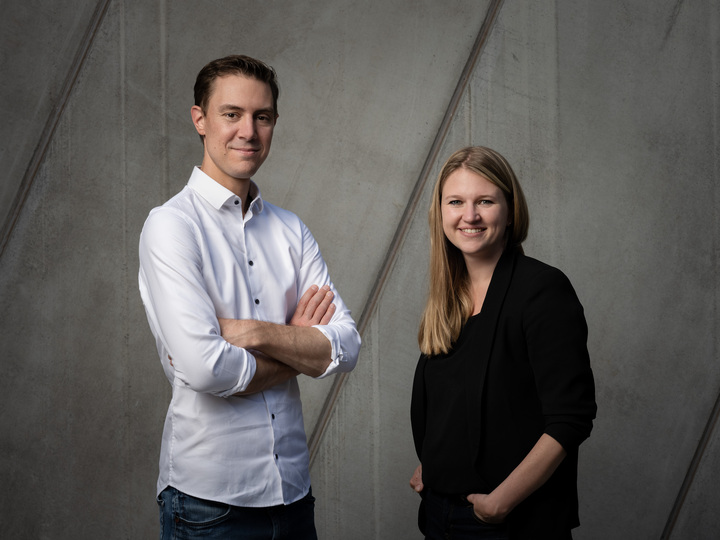“It's really hard; there are not that many [female partners]. The cost to train someone is a big tax.”
Yesterday, the interview this quote came from caused uproar in the VC community. If you are in any way involved with any women in VC communities, your phone was probably alight with messages of outrage, injustice, sadness and anger.
It is hard to see such things written in black and white, but what’s even sadder is that this is not an outlier opinion. The impossibility of finding and hiring female talent is a belief held by many male investors and partners. I know; I’ve heard this multiple times.
It’s time to address the common misconceptions around women in VC, as these outdated perspectives are either unfair, harmful or outright wrong.
There aren’t many female partners in VC
This is an easy one — it’s simply not true. There are 350+ female partners in Europe, according to this Sifted database, and we have also had many incredible partners speaking at the WVC:E Summit over the years. We are here. Work harder.
Most female candidates are unqualified. They don’t have years working in VC, experience building a business or heaps of board experience
This is a double standard. In my experience, many men who lack all of these qualities have been appointed partners — yet when women candidates apply for roles with similar levels of experience, they are turned down. It’s well known in the VC industry, as in many others, that women are held to impossibly high standards — and there is no reason why that should be the case except for precedent and, generously, unconscious bias.
Women need too much training and mentorship
The view that women need so much support because they are so behind is incredibly detrimental and unmotivating.
As Evgenia Plotnikova, general partner at Dawn, posted on LinkedIn: “The message many might take from this article is that it is a 'tax' to train women in Europe, and they are not worthy.” A tax is an expense, something you have to pay but resent. That is not the way talent should be viewed in any business. Talent is an investment. This is something we tell our portfolio companies all the time.
And ironically, because this attitude is prominent throughout the industry, women have had to work harder to get to the same level as their male peers.
A male investor who has had more time in the industry is a better bet than a woman
Venture capital as an industry is governed by two guiding principles; diversification and making bold risky bets.
Diversification — it’s well acknowledged that a more diverse portfolio generates better returns. Why is that principle not applied to VC teams? A recent European Women in VC report showed that management teams mostly composed of women outperform men-only teams by 9.3%. On average, each 10% increase in the representation of women is also associated with a 1.3% increase in the IRR (internal rate of return) of a VC fund. It’s simply better business to be as diverse as possible.
Making bold risky bets — hiring a white male investor is not a bold risky bet. It’s a safe bet. And making anything other than a bold bet is misguided. As Emma Steele, partner at Ascension, said: “We don’t need two decades of investment decisions to create outsized returns, you need a bold point of view, strong talent and exceptional access.”
Change is coming
In every industry, where women fight for representation, the journey begins with discrimination, underestimation, condescension and resistance to the acknowledgement that women’s contributions have value. But this environment inspires change. This industry is changing, and as always, it is being driven by those who have had enough and want to change the status quo.
One of the most exciting changes we’ve seen in the last few years is the rise of female emerging managers. As Sarah Drinkwater, solo GP of Common Magic, says: “What happens in these conditions is women start their own funds, hard as it is, and do things differently.” Drinkwater sits alongside a long list of female GP success stories, including Auxxo, Revaia and Puzzle Ventures to name a few.
LPs are also seeing opportunities for outsized returns by doing things in a new way — KfW, one of Germany (and Europe's) biggest LPs, launched a €200m ‘emerging managers facility’ last year to invest in funds that are managed by women or gender-diverse teams.
And I, alongside Ruth Foxe Blader, set up WVC:E for this exact reason: to bring women together; to make the industry more integrated and inclusive; to create a place where all people can contribute their talent and have it recognised; and to drive change. It’s less than two years in — and it’s working. We have an incredibly thriving WhatsApp group, a place to showcase female role models at our Summit and are inundated with daily success stories of progression, collaboration and wins.
We are proving the beliefs held by Kanji and others are outdated. The industry's trajectory is shifting, fuelled by those who refuse to accept the status quo and strive for a more inclusive, diverse future. It's time for the VC community to recognise that change is not just necessary — it's a strategic imperative for future success.




